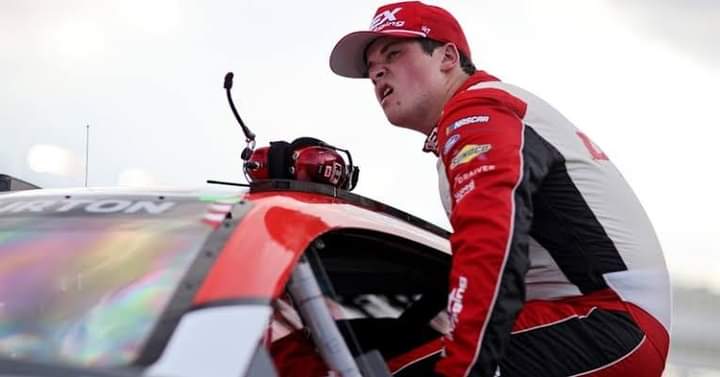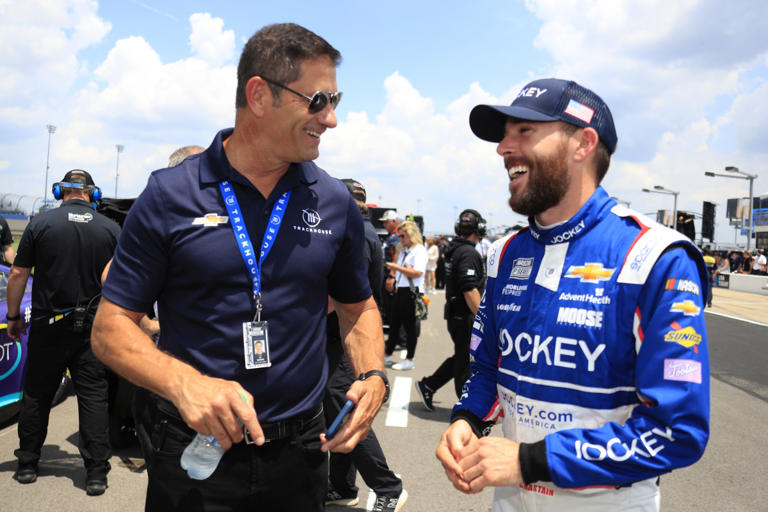Harrison Burton’s path to the NASCAR Cup Series playoffs this year has been anything but typical. Although he isn’t ranked among the top 30 in the point standings, Burton managed to secure a playoff spot due to a subtle yet significant rule change that went largely unnoticed but has since had a major impact on the playoff dynamics.
During the offseason between the 2022 and 2023 NASCAR Cup Series seasons, a crucial change was made to the playoff qualification rules. Traditionally, the NASCAR playoffs operated on a “win and in” format, where a driver with a regular season win was automatically qualified for the playoffs—provided they were within the top 30 in the point standings. This rule ensured that only drivers who consistently performed well, even if they had a single win, could compete in the postseason.
However, the 2023 season saw this top-30 requirement removed. Initially, this seemed like a minor tweak, unlikely to affect the playoff field unless an unexpected win occurred in a superspeedway race. This scenario played out exactly as anticipated.
Burton’s Daytona Triumph: A Turning Point
Throughout the season, Harrison Burton, driving for Wood Brothers Racing, had been struggling, often ranking near the bottom among the 34 full-time drivers. By mid-July, after the Brickyard 400 at Indianapolis Motor Speedway, Burton found himself in last place, trailing Zane Smith of Spire Motorsports. With an average of just over 11 points per race, Burton faced a daunting challenge to climb higher in the standings.
Heading into the Coke Zero Sugar 400 at Daytona International Speedway, Burton was 26 points behind Smith—a gap that seemed insurmountable given his performance throughout the season. But in a dramatic twist, Burton secured his first-ever Cup Series victory, an achievement that not only broke a seven-year winless streak for Wood Brothers Racing but also marked the team’s historic 100th win. This unexpected victory thrust Burton into the playoff spotlight.
Despite this victory, Burton still remained in 34th place in the standings, 44 points away from the top 30 by the end of the regular season. Under the old rules, this would have disqualified him from playoff contention. However, due to the offseason rule change, Burton’s Daytona win was enough to guarantee him a spot in the playoffs.
A New Playoff Reality
Burton’s entry into the playoffs signifies a major change in how the postseason field is determined. Thanks to the rule change, Burton is now locked into the four-round, 10-race playoffs, ensuring him a top-16 finish in the championship standings—a first in his career as a third-year driver.
Burton joins 13 other drivers who earned their playoff spots through regular-season wins, alongside two drivers who qualified on points. His unlikely playoff berth underscores how even the smallest rule adjustments can dramatically alter the sport, upending the traditional playoff picture and providing new opportunities for underdogs to leave their mark on NASCAR history.
As the playoffs begin, all attention will be on Burton to see if his unexpected postseason entry will evolve into a true Cinderella story on the track.
NASCAR’s Under-the-Radar Rule Change Lands Harrison Burton in the Playoffs




